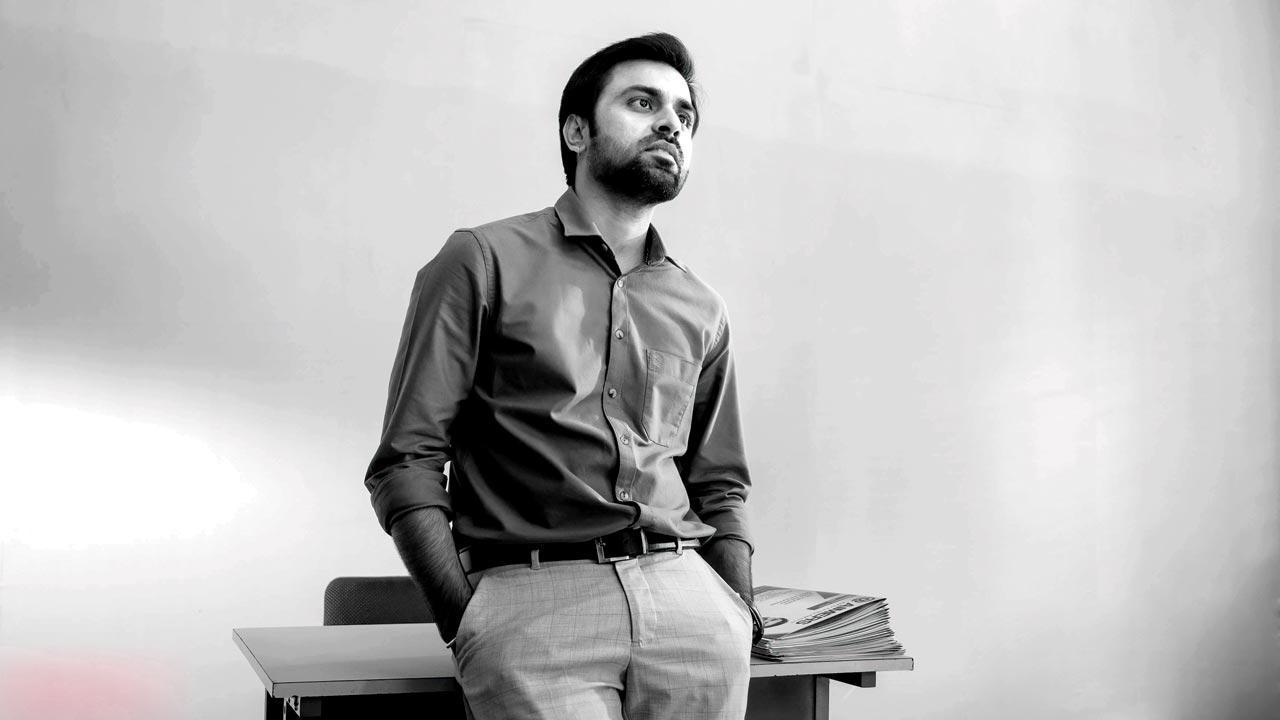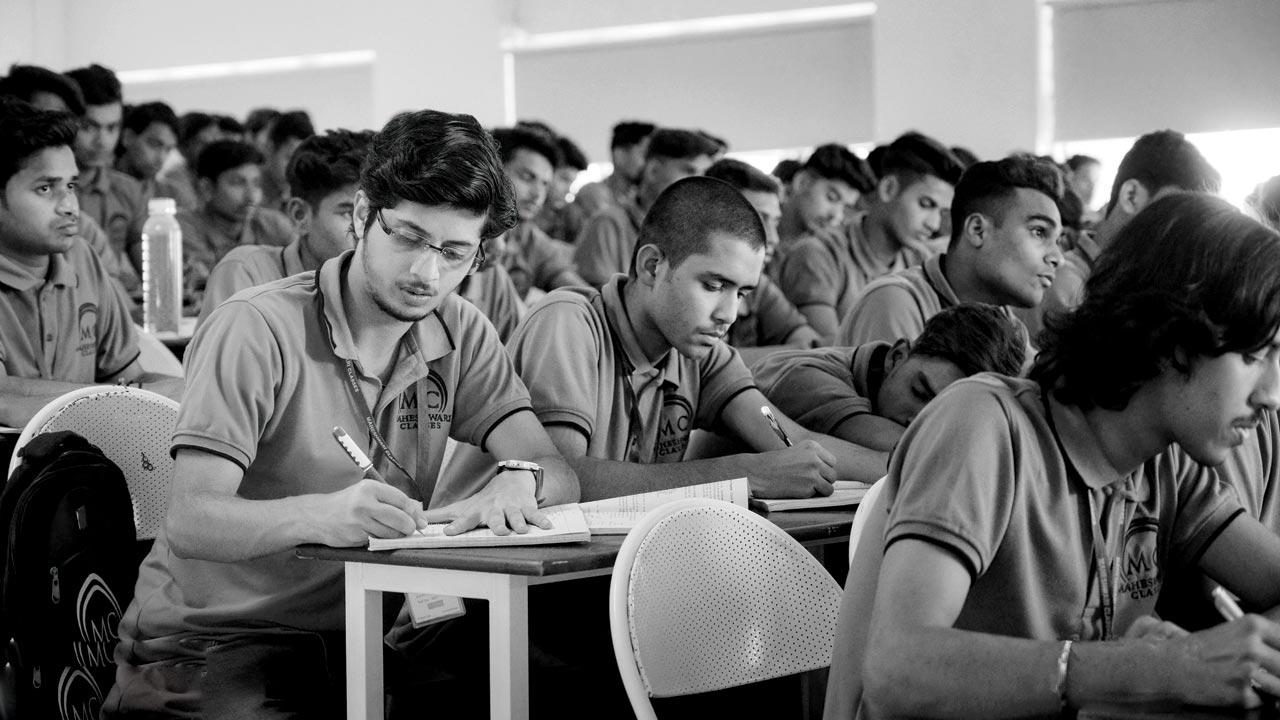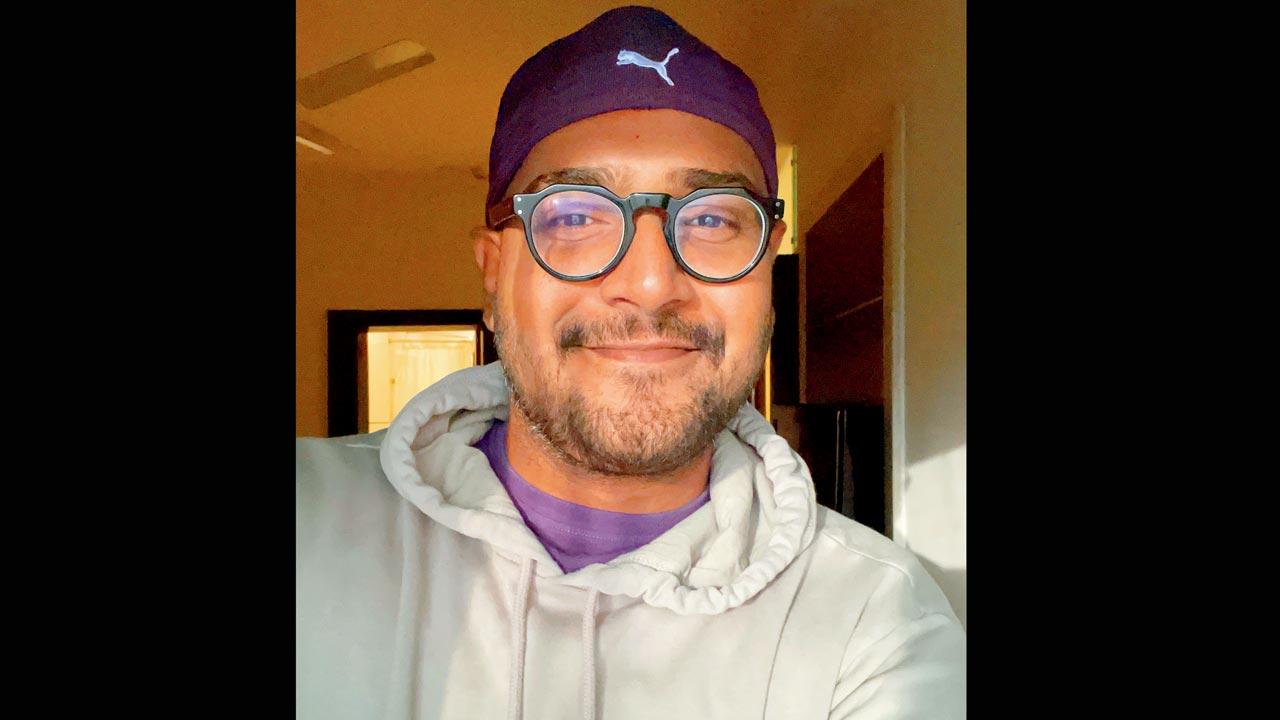The director and lead of the hit Kota Factory tell you what the city, where IIT dreams are made, taught them

Actor Jitendra Kumar plays Jeetu Bhaiya, a mentor for the students
The Kota story actually began in the ’90s, when educationist VK Bansal started Bansal Classes. From that one classroom with a handful of students, the coaching scene in Kota has just taken off today. Students from all over the country come here to prepare for JEE or NEET examinations, which help them get into the IITs,” says Raghav Subbu, director of the Netflix show Kota Factory.
ADVERTISEMENT
Bansal, who went to the Indian Institute of Technology (BHU) Varanasi, suffered from muscular dystrophy later in life and started coaching students in 1991. Thirty years later, Kota in Rajasthan, is an educational hub, with almost 1,50,000 students passing through it every year. The entrance coaching industry in Kota generates business of about Rs 40,000 million. As Subbu says, “We have met so many children who have lived the Kota life. The IIT life itself is so organic to the Indian fabric that somebody had to tell this story, and tell it well.”
 Kota Factory looks into the lives of students who make Kota their home to study for IIT JEE and NEET examinations
Kota Factory looks into the lives of students who make Kota their home to study for IIT JEE and NEET examinations
Kota Factory was created by video on demand and OTT streaming service TVF, in 2019, and initially was only available on YouTube. Following its stupendous reception in its second season, Netflix came on board. It tells the story of 16-year-old Vaibhav (Mayur More), who hails from Itarsi in Madhya Pradesh, and other students, who arrive in the city. The show also stars Jitendra Kumar as Jeetu Bhaiya, a well-intentioned teacher. It’s stark, real, with a relaxed pace that comes with being set in a small town, and reflects the Indian obsession and passion for the IIT dream in a candid, and endearing way.
Kumar, who studied at Kota in 2006 himself, says that the internal brief he followed for his character was to not be like a teacher, but like the older brother at home, whom you seek out for advice. “The character sketch was quite detailed, and I added from my own experience. The teachers there have a certain manner about them. I wanted to be a bada bhai, like Jeetu,” he says.
 Raghav Subbu
Raghav Subbu
The writer of the show, Abhishek Yadav, along with creators Arunabh Kumar and Saurabh Khanna of TVF, all went to IIT, and Subbu says that’s responsible for the tone of the show. “We didn’t even know it would become a show—it was supposed to be a comedy. But, the ground on which it stood had all the stories,” he says.
The team had to update themselves on the lives of teens now. Because even if the aspirations and vibe of the city has remained unchanged, the habits of the kids surely haven’t. “Instead of playing video games in cinema cafes, they were playing PUBG on their phones, and instead of eating the ’90s’ favourite patties, or the puff pastry, there is now a sub-culture of kachoris in the city. We had to update the whole experience of being in Kota,” adds Subbu, who says that he brought an “untouched” perspective to the show. “I have never been to an IIT, and I hate math. For me, it was all about recreating the world these children lived in.”
Its black-and-white world makes Kota Factory stand out in the Netflix world of glossy Korean shows, gory crime dramas and colour. “It’s a slow city—children come here and study. Like any small town, it has a relaxed vibe. That’s why the pacing of the show is slow. When we were on YouTube, it was almost like it had all the ingredients of a flop show—black-and-white, slow, and 40-minutes long. But it worked. It’s like Kota makes you embrace the monochrome life,” says Subbu.
Both Kumar and Subbu say that the show has made people more aware about what Kota is all about, and it’s not just about suicide. Kota has seen many student deaths year after year, owing to high pressure and fear of failure. According to the Kota district administration data in 2018, 58 students enrolled at private coaching centres in Kota committed suicide between 2013 and 2017. In 2017, there was a dip in suicides, which were down to seven compared to 17 in 2016 and 16 in 2015. There were over 20 deaths in 2019. “I think things are improving—kids are more open with their parents, and their expectations are more practical. But they are still very ambitious, and we wanted to highlight the good side as well,” says Subbu.
For Kumar, the show’s success and his own popularity points to why students need a good mentor. “It’s hard to find a person who can be honest with you, encourage you, but not show you false dreams. We lack good role models. The show in a way says it’s possible to find one.”
 Subscribe today by clicking the link and stay updated with the latest news!" Click here!
Subscribe today by clicking the link and stay updated with the latest news!" Click here!







